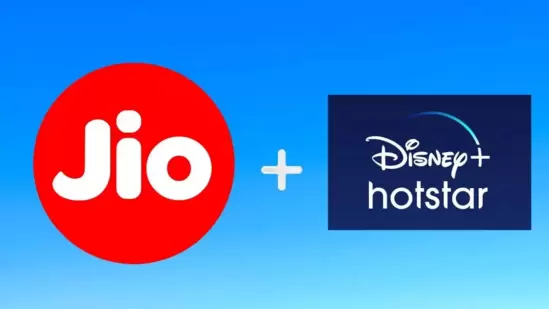Delhi Techie Snags ‘JioHotstar’ Domain
- October 24, 2024
- 0
Tech-Savvy Move Sparks Corporate Standoff On, October 22, 2024, NEW DELHI, INDIA – In a brash and unexpected maneuver, an techie from Delhi had outwitted the gun and registered
Tech-Savvy Move Sparks Corporate Standoff On, October 22, 2024, NEW DELHI, INDIA – In a brash and unexpected maneuver, an techie from Delhi had outwitted the gun and registered

On, October 22, 2024, NEW DELHI, INDIA – In a brash and unexpected maneuver, an techie from Delhi had outwitted the gun and registered the domain name ‘JioHotstar’ before the merger of JioCinema and Disney+ Hotstar was even speculated. And now, he is asking for an Ivy League-level education-in other words, funding for a Cambridge University course-as the price to hand over the domain name rights to Reliance Industries, one of the biggest conglomerates in India.The development has garnered mixed reactions in the form of applauding the techie for his foresight and another section accusing him of being hostage to corporate giant.

The Pre-Merger Domain Grab
A well-anticipated merger between Reliance-owned JioCinema and Disney’s Hotstar streaming platform, the techie, Ankur Singh, grabbed the domain ‘JioHotstar.com’. This domain goes in line with predictions that the merger is going to bring both the brands under one roof, in this case, assimilation of dominance in communications by Jio with that of content sector dominance by Hotstar. I knew this merger was coming, and the domain name was just sitting there, unclaimed,” Singh said. “It was a business opportunity I couldn’t resist.”
Demand: Cambridge Education for a Domain
Instead of requiring the payment of money for the domain, Singh made the unusual demand: money to fund his education at Cambridge University. The techie reportedly wants to pursue a degree in computer science and AI and has asked Reliance to pay all of his tuition, accommodation, and living costs in full as part of the deal to transfer the domain. “I don’t want just money. I want education that will change my life,” Singh said in an interview. “If some multi-billion-dollar corporation wants some things from me, I think this is a fair trade.”
Reliance’s Legal and Strategic Response
Reliance Industries has so far remained mum on the negotiation process, though it is said to be considering legal courses of action to regain control of the website. Experts believe that the giant tech corporation may engage in a domain dispute resolution course through the Internet Corporation for Assigned Names and Numbers (ICANN), which deals with intellectual property disputes including domain squatting.
After all, the news of the merger is about to break, and every passing day will reduce Reliance’s bargaining power in negotiating with the domain name owner. Branding and marketing strategy may be impacted by control over the domain name if a unified digital identity has not been secured before the rollout of the merged platform. “A brand as big as JioHotstar cannot afford confusion or delay,” said brand consultant Rajesh Malhotra. “Reliance will likely resolve this quickly, either through legal channels or by meeting the techie’s demands.”.
Legal and Ethical Questions
The scenario, he has sparked considerable debate on the ethos of domain squatting and gray areas in the law as pertaining to intellectual property online. This Singh move is not technically illegal, though his critics refer to him as an opportunistic operator. Others take it as brilliant maneuvering once again pointing gaps in the preparedness of the corporate world. This is indeed a David-and-Goliath story,” observes technology lawyer Sunita Verma. “On one hand, Singh acted within his rights. On the other, corporations like Reliance have the resources to fight back, setting an important legal precedent.”
A Tech-Driven Global Phenomenon
The incident has garnered international attention as media houses across Europe and North America cover the story. Domain disputes are not new, but Singh’s unconventional demand for funding on education has captured the imagination of the technology community.
Cases like these make one realize just how much digital identities and online real estate are as valuable in an age such as today, and technology savvy citizens can do much to affect corporate dynamics. Analysts site prior cases with companies such as Apple and Microsoft which caused a hue and cry over domain disputes and say that this case, specifically with Singh, represents an emerging trend of digital leverage.
Conclusion: Innovation or Exploitation?
At a time when Reliance Industries is preparing for one of the biggest mergers in the streaming world, things have only gotten tougher with Ankur Singh’s strategic domain acquisition. The techie’s daredevilish request for Cambridge education funding may be boorish and a shade of the blue, but it certainly raises some quite relevant ethical and legal questions about the limits of online opportunism.
As the standoff continues, the resolution—whether by way of negotiation or to be decided by due process—will most certainly set a precedent for how digital leverage is handled in the future. For now, Singh’s story is a reminder that the internet remains a space where creativity, ambition, and controversy will often collide.